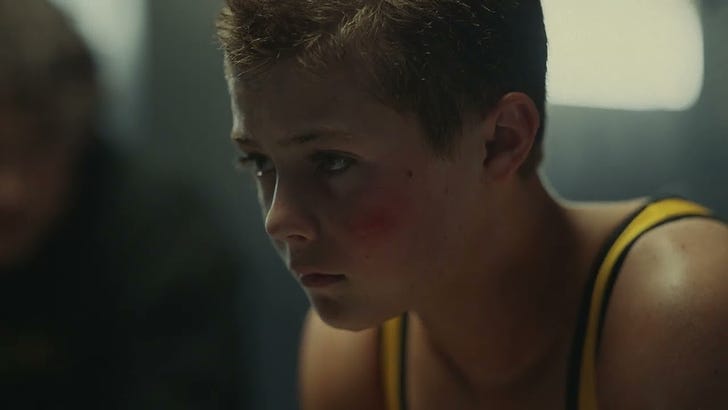Please Show Your Kids The Hyundai Olympics Ad
“I can tell you’re doing it for that look on my face.”
Good Game is a 1-2x/week publication aimed at educating youth sports parents and coaches so they can best empower athletes.
I’m not in the market for a new car but if I were, Hyundai would be in the running. I have no clue how Hyundai’s automotive specs compare to other brands. All I know is the realism of Hyundai’s tear-jerking Olympics ad titled, “It’s OK” jumped off the screen and into my soul. After all, the ad’s message of pushing back on specialization and the grind of youth sports is a massive tenet of what we’re all about here at Good Game.
Here it is to watch for the first time or, if you’re like me, the 27th time:
An event like the Olympics where athletic dreams are realized and heroes are made often comes with predictable messaging to kids. This is the pinnacle. If you want to get here, you need all the grit and drive imaginable. You MUST make sacrifices. Oh and by the way, you should want to get here because shouldn’t making it to the peak be everyone’s goal?
Nike took the traditional messaging playbook to the extreme this Olympics. The brand’s horrible "Am I A Bad Person?” ad basically tells kids they should trade compassion and respect for bad sportsmanship if they want to be GOATS like LeBron James, Sha’Carri Richardson, Victor Wembanyama, Serena Williams, and Kylian Mbappe, among other Nike athletes. Presumably, Nike’s intention was to embrace competitiveness but instead the message missed the mark and came off like a PSA for all aspiring athletes: To be great, you must be an asshole.
Juxtaposed to Nike and the general expected Olympic messaging, Hyundai’s ad is even more profound.
“As the world gathers to watch a small fraction of elite athletes compete for gold, the obvious brand message would be to talk about the grit, determination and teamwork needed to win. But it’s a long journey from youth sports to gold medalist, and for many kids the passion doesn’t match the pressures,” Jason Sperling, chief creative officer of Innocean USA, the firm that created the ad, said in a statement. “We wanted to use this moment to remind parents that kids need to find joy in their sports journeys, even if means taking a break or pivoting to something else.”
As the Hyundai ad depicts, the car ride home tends to be one of the most telling settings. But before watching out for trends or mood shifts from our young athletes, parents must truly believe that it’s ok. That if their kid doesn’t love the sport, it’s ok to take a break or quit or try something new.
Of course, this is a parent knowing their child situation. A child answering a probing parent’s question about how practice was with “good” could have multiple meanings. Perhaps the kid is truly despondent and needs a change. Or perhaps the kid had a lovely practice but has zero interest in talking to their parent. Or maybe they’re hangry. Who knows? One little tip plucked from Journalism 101 is asking an open question as opposed to a yes/no. Like, what was the best part of practice today? Or, what were some things you guys worked on today?
How a kid responds might provide a little more insight, but ultimately empowering your kid to express their mindset toward their activities on a regular basis is key. As a mom in the ad says, “I can tell you’re doing it for that look on my face.” Hyundai is asking us to think about who cares more, us or our kids. I’m so grateful to Hyundai for its attempt to spark these crucial conversations, especially amid the uber-competitive landscape that is the Olympics.
Hyundai isn’t the first brand to take a detour from the old school win-at-all-costs mantra. Powerade ran an inspiring ad applauding Simone Biles for taking a break to focus on her mental health and “dig deep down to remember why I’m doing this.”
It’s hard to argue with the #PauseisPower campaign given Biles’ success in Paris. Please show your kiddos this ad as well.
There is still much power in athletic greatness, and success sells. But hopefully we are embarking on a new era where more companies are spending their marketing dollars to spark important conversations. Giving your kid the green light to share whether the passion for the sport they’re playing has dimmed or was never there to begin with is a healthy place to start.



